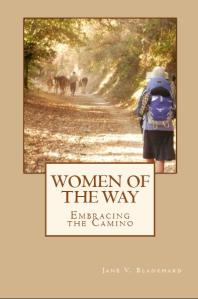When I picked up Women of the Way, Embracing the Camino, I expected a nice little travel log with a couple of descriptions here and there, and maybe a picture or two. That is not to say I expected anything bad of the book (quite opposite, actually). Honestly, I do not usually read travel memoires.
To be honest, reviewing for StreetWraith Press and Bay Side Stories has seen the most memoires that I have ever read. I am even picking up tips for that eventuality when I will write my own.
Writers learn a lot from reading. I highly recommend it.
Still, I expected good things within the pages. In addition to descriptions of the physical journey, I also expected some introspection and sharing of ideas and epiphanies. Jane is a friend of the site (disclosure time – by the way, she is the same Jane Blanchard you will find under The Network links to the left) and I find her blog to be interesting and informative.
What I did not expect was to ask a question.
Good books will often get me dwelling on them, long after I put down the book at the end of a chapter, but few of them prompt me to ask questions. Women of the Way sits among a rare few.


